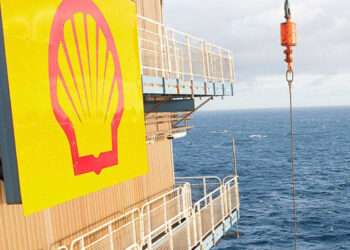The International Energy Agency (IEA) has said that, major efforts to develop and deploy clean energy technologies worldwide is urgently needed to meet international energy and climate goals, particularly in order to reduce carbon emissions from areas beyond the power sector such as transport, buildings and industry.
The Agency in a report said that, with global carbon emissions at unacceptably high levels, structural changes to the energy system are required to achieve the rapid and lasting decline in emissions called for by the world’s shared climate targets.
According to the report, it finds that, transitioning just the power sector to clean energy would get the world only one-third of the way to net-zero emissions.
“Completing the journey will require devoting far more attention to the transport, industry and buildings sectors, which today account for about 55% of carbon emissions from the energy system. Much greater use of electricity in these sectors, for powering electric vehicles, recycling metals, heating buildings and many other tasks, can make the single largest contribution to reaching net-zero emissions, although many more technologies will be needed.”
The report also revealed that, the power sector and heavy industry sectors together account for about 60% of emissions today from existing energy infrastructure adding that, the share will climb to nearly 100% in 2050 if no action is taken to manage the existing assets’ emissions, underscoring the need for the rapid development of technologies such as hydrogen and carbon capture.

It also said that, ensuring that new clean energy technologies are available in time for key investment decisions will be critical.
“In heavy industries, for example, strategically timed investments could help avoid around 40% of cumulative emissions from existing infrastructure in these sectors. Accelerated innovation is crucial for this and for scaling up the clean energy technologies needed across the energy system.”
Hydrogen is expected to play a large and varied role in helping the world reach net-zero emissions by forming a bridge between the power sector and industries where the direct use of electricity would be challenging, such as steel and shipping.
The report further noted that, Governments need to play an outsized role in accelerating clean energy transitions towards meeting international goals adding that, economic stimulus measures in response to the Covid-19 crisis offer a key opportunity to take urgent action that could boost the economy while supporting clean energy and climate goals.
Commenting on the report, IEA Executive Director, Dr. Faith Birol said
“Despite the difficulties caused by the Covid-19 crisis, several recent developments give us grounds for increasing optimism about the world’s ability to accelerate clean energy transitions and reach its energy and climate goals. Still, major issues remain.
“Solar is leading renewables to new heights in markets across the globe, ultralow interest rates can help finance a growing number of clean energy projects, more governments and companies are throwing their weight behind these critical technologies, and all-important energy innovation may be about to take off. However, we need even more countries and businesses to get on board, we need to redouble efforts to bring energy access to all those who currently lack it, and we need to tackle emissions from the vast amounts of existing energy infrastructure in use worldwide that threaten to put our shared goals out of reach.”





















